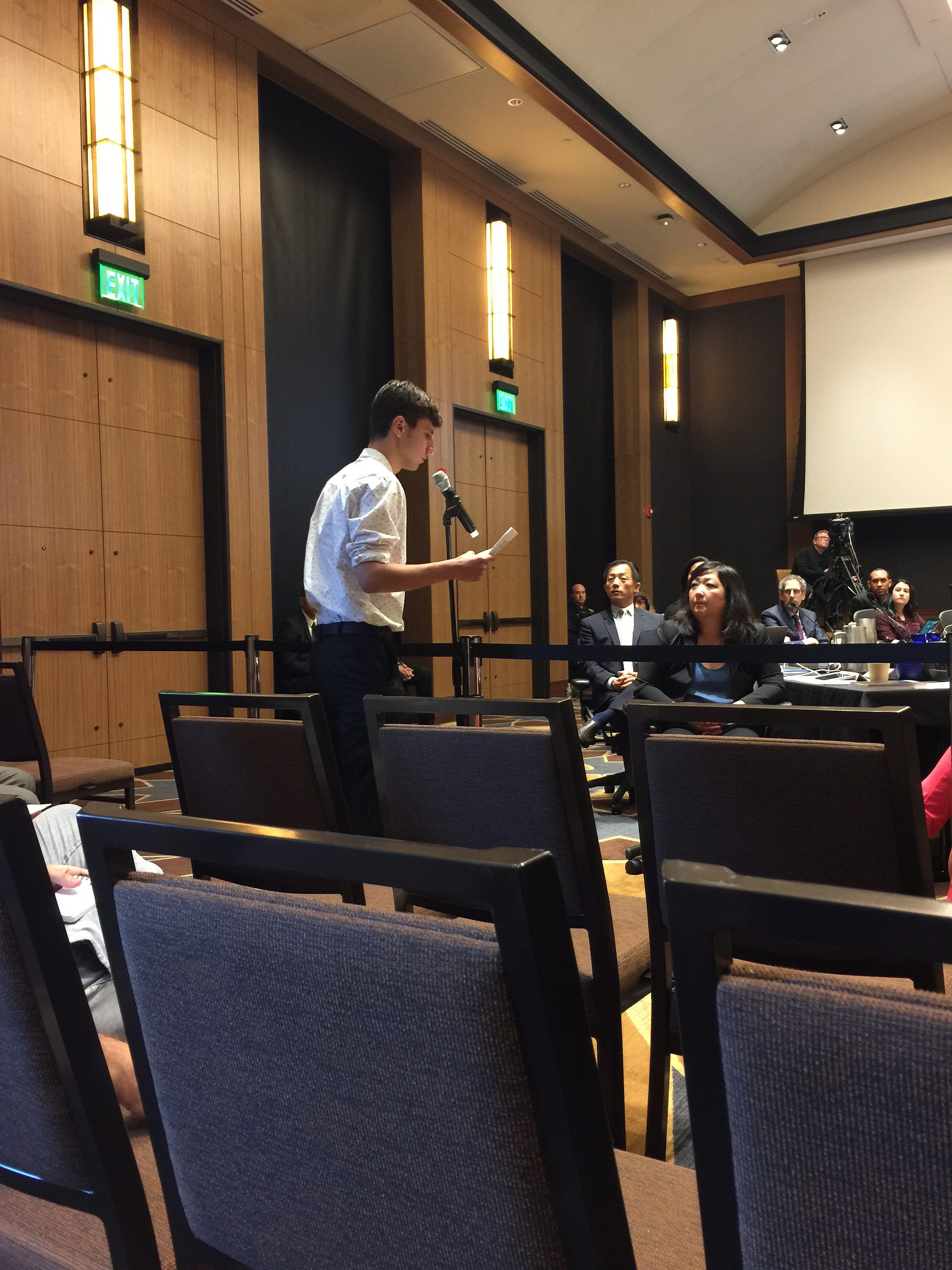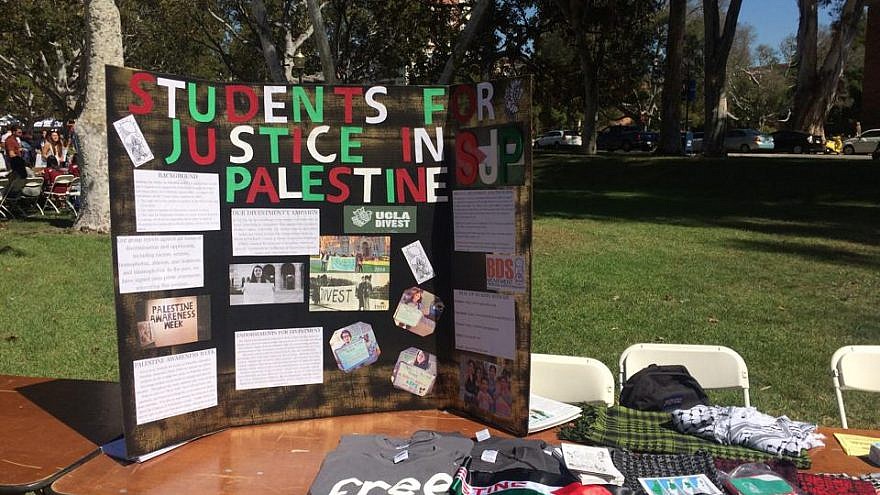Tens of thousands of students returned to the Westwood campus of University of California, Los Angeles, on Sept. 27 for the first day of classes. However, third-year student Justin Feldman, 20, a political science and Middle Eastern studies double major, wasn’t there.
Instead, he spent the morning addressing the University of California Board of Regents during its board meeting’s public comments section regarding the upcoming eighth annual National Students for Justice in Palestine (NSJP) Conference. UCLA is slated to host the event from Nov. 16-18.
Speaking before the board, Feldman painted a different picture—a disturbing one.
“Every year, SJP invites speakers with proven connections to terrorist organizations, such as Hamas,” he said. “Some are even convicted terrorists themselves, like Rasmea Odeh, who was convicted and jailed for the murder of two Israelis and many more wounded. These are SJP’s role models. Does this sound like a human-rights conference to you?”
Established in 2010, NSJP (per its website) has nearly 200 chapters on college campuses across the nation and claims to stand against “homophobia, misogyny, racism, anti-Semitism, Islamophobia, classism, colonialism, ableism, and bigotry and discrimination of any form.”

Jonathan Harris, executive director of the Israeli-American Coalition for Action, disputed this notion before the board. He was also on hand to deliver a statement, invoking paragraph “C” of the UC Regents Principles Against Intolerance—“Anti-Semitism and other forms of discrimination have no place in the University”—to demonstrate why NSJP’s conference has no place on UCLA’s campus.
“SJP’s hatred of Jews and Israel is racism—violent, rationalized racism—and this conference in Los Angeles sends one clear signal to anti-Semites everywhere: ‘Come to UCLA, you are welcome here,’ ” he said.
Prior to his statement, Harris distributed copies of an 18-page report detailing instances of NSJP-inspired anti-Semitism to the board. The document included dozens of screenshots from NSJP member twitter accounts—gems like “Every time I read about Hitler I fall in love all over again,” “How do you get a Jewish girl’s number? Roll her sleeves up” and “Let’s stuff some Jews in the oven.”
Harris read some out loud for the Regents, adding that they’re all “real, preserved and documented.”
One of the troubling details about the conference itself, Feldman noted in his statement, is that it won’t be open to all students.
“It is crucial that this conference be open to all students to ensure that pro-Israel students can defend their views, and that instances of anti-Semitism, which violate Title VI of the Civil Rights Act and other federal laws, are documented and referred to the relevant authorities,” he said.
Closed vs. open conference
What appeared to strike a chord with the board was the notion of a closed conference. Almost immediately after statements from Harris and Feldman, Regent Sherry Lansing expressed surprise regarding the policy.
“I thought conferences had to be open,” she said to her fellow Regents before calling the possibility of a closed conference “very concerning.”
Lansing, along with Regent/Vice Chair John Pérez, asked for a speedy inquiry into governing legislation of board policy applicable across UC campuses with regards to the issue of closed versus open conferences.
“I was a little shocked myself,” Harris told JNS after the board meeting, “that a group like this, that’s at the very least controversial, could hold a closed conference at a university and not invite greater scrutiny. That’s troubling. But it does look like they’re going to take it seriously.”
He added that, although he’d like the “pernicious” event not to be allowed to take place at all, an open conference could “work to the advantage of truth in having the whole thing exposed.”
After the board meeting, Harris acknowledged that he wrestled with whether or not to speak out publicly in condemnation of NSJP and its activities on campus.
“It’s a tough call because we don’t want to give [NSJP] more press than what they deserve, but at the same time, you want to call attention to it when anti-Semitism is being used out in the open and being broadcast to indoctrinate a next generation,” he told JNS. “So we feel like we have to be here, we have to call this out.”
For Feldman, a member of Students Supporting Israel, a grassroots pro-Israel organization active on UCLA’s campus, the decision to speak emanated, in part, from his personal dealings with SJP’s UCLA chapter. Feldman has already filed a criminal case against several SJP members with the UC’s police department in connection to alleged incidents of vandalism, battery and disruption at a May 17 event.
“In order to change the tide of things, we need to make clear denunciations of their misconduct,” he said. “And that’s not just on a local level, but also nationally. That’s why it was so important for me to bring this to the attention of the Regents, and continue to address the illegality or illegitimacy of their actions.”
As of this writing, NSJP and UCLA’s branch of the organization have not yet responded to requests for comment from JNS.

























